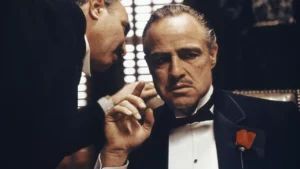
Inception is a classic, no two ways about it. It was the movie which enhanced Christopher Nolan’s image and created him into this person who takes pleasure in messing with people’s understanding. And he does it with such grace, creativity and respect to the science he follows.
Inception brought out a change in people’s perspectives towards films. It gave experimentation a new meaning. Nolan’s dedication into creating a world where dreams dominate reality is really something which people never expected. And then he deepens this world by introducing mazes and illusions and creates an entire world in those dreams.
Obviously, he has had a lot of different time altering, mind bending sci-fi movies come out later on, but in my opinion, Inception still takes the top rank in his independent genre. So, how does he do it? How does Christopher Nolan create a universe around things which are incomprehensible and beyond reality?
How Christopher Nolan constructs a dream in Inception
It begins with an idea, so I imagine Nolan must have thought about dreams and how they affect our lives and add stories that only our subconscious can conjure. Then comes the stake, and in this movie the stake is a way back home. Leonardo Dicaprio’s character gets framed for the murder of his own wife and so the only way back for him is to extract something which he can’t possibly do in reality. The only way home is through his subconsciousness. The mind plays tricks on all and therefore, to pull off the biggest dream heist has got to be the greatest trick.
Assembling a team, assigning roles and figuring out what each character’s role is going to be in the movie would have taking perseverance since one can’t dissect a dream. How do you know what works and what doesn’t in a dream? What are the capabilities and what are the boundaries you don’t cross so that the film doesn’t derail and become hard to believe? So, we imagine the sequence of a heist. How does a heist work, you infiltrate a bank, extract the code to the safe using an inside person and steal whatever it is you need.
Now put this same concept in a dream and you have Cillian Murphy who plays the guy with the access, Joseph Gordon Levitt who plays the role of researcher and making sure every detail is perfect, Tom Hardy whose sole job is to con the guy with the access and give him false hope and finally Elliot Page who plays the role of the architect of the bank.
The Moral compass and Stakes involved in Inception
Now that we have the basic outline of the plan, re-introduce those personal stakes and elevate them with a trauma. In this case the trauma being the death of Cobb’s (Leonardo Dicaprio) wife. She attached herself towards a dream so much that it brought her downfall and this brings about the risks in this job.
The element of moral code and how you stop your mind from blurring the lines between reality and dream. Christopher Nolan does two things right in this, first he introduces the science and second, he connects the emotional aspect (The Trauma) with the science so that the stakes don’t feel outlandish. Cobb’s deep affiliation with dreams brings him even more close to a breakage. His sentiment and his goal is to meet his kids yet what he can’t put behind is the guilt of having his wife die in front of his eyes. His regrets which he keeps in cages in his memory are what in turn caging him in the reality. He wanders in the night to confront with these memories, hoping for catharsis or redemption but he along with Ariadne know that it’s not possible.
So, they divulge into the heist, with a map and a solid plan. Now is the time Inception introduces risks. These risks are the violent subconscious entities of Fischer (Cillian Murphy) and an even higher risk is death. Which won’t wake you up but only push you further into a state where the mind is stuck for the entire duration of the dream, which in this case might be decades. The state of limbo is the biggest antagonist of the movie and to successfully complete the mission, death is to be avoided. This is where combat comes into place and makes these dream sequences feel larger than reality, literally.
Cobb’s (Leonardo DiCaprio) final moment of peace in Inception
Inception ends on a nail-biting moment of synchronization, and in the end everyone, except Saito, comes back to the reality. Then we get a clear glimpse of what limbo actually looks like, a vast expanse of broken, crumbling memories. We make this debate to figure out whether the ending was truly a dream or not. But what we don’t see is that it doesn’t matter.
My opinion pushes me to believe it was reality but even if it wasn’t, Cobb finally looks content and satisfied with where he is at. He sees the faces of everyone in the plane and each of them is looking at him, knowing that they have uncovered something about him, knowing that they share a secret, a piece of info that no one but people in the plane understand and knowing that they have achieved what they set out to do.
The Movie Culture Synopsis
There’s pure sullen silence and no words are shared. For Fischer, he has uncovered the truth about his father’s perspective and for the first time in his life, his reality is altered. Cobb is confused, not so sure whether the moment he is with his children is reality or not, but he doesn’t care. He swirls the totem on the table, his final awareness of the line between a dream and reality, and he is finally happy.



